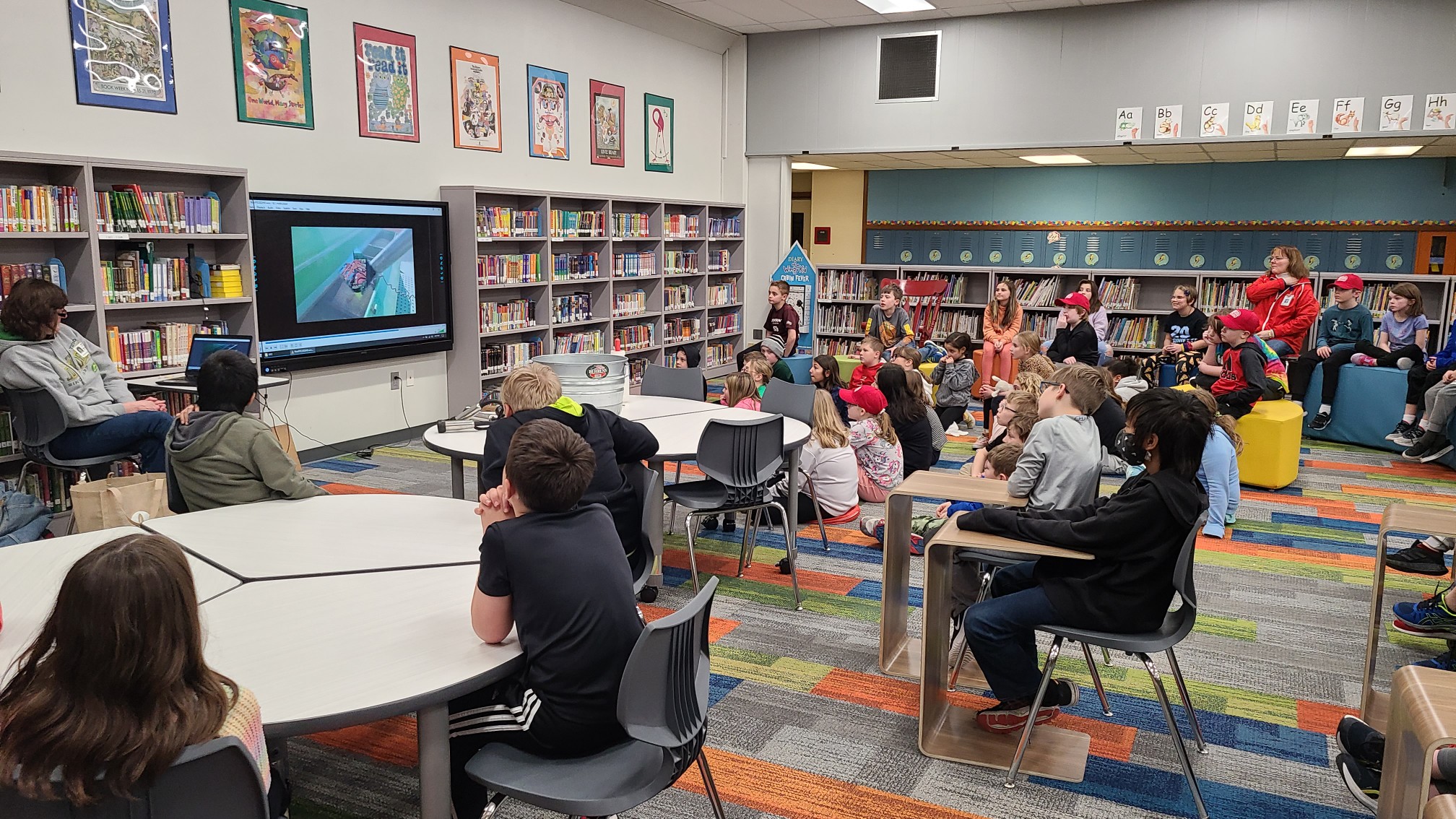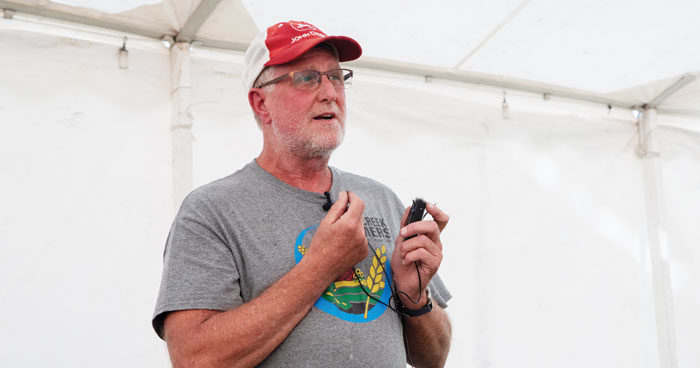There are countless times when Ross Bishop, a no-tiller in Jackson, Wis., experienced a test of faith with no-till. Over the last 24 years, he’s managed drought, flooding, water contamination concerns, late frosts, cover crops that didn’t die and more. Throughout it all, he’s continued to preach the benefits of no-till to other farmers and neighbors in his community.
“You have to have faith and the confidence that no-till is going to work out in the long term,” Bishop says.
At his location about 30 minutes north of Milwaukee, Bishop runs about 700 acres with the help of his wife, Marcy, and Stephanie Egner, a conservation technician with the Washington County Land Conservation Department. Their fields have been 100% no-till since 1997.
They typically plant 200-240 acres of corn, 300 acres of soybeans, 115 acres of wheat, some rye and a few acres of hay for horses. Plus, they raise 100 Black Angus cattle.
As a no-tiller, Bishop saves on labor, costs and time. He doubled his acres when he switched to no-till, but he also spends less time and money on working the ground. He estimates he saves $150 an acre on inputs because no-till and cover crops build healthier soil. Just this year, he applied 145 units of nitrogen on a field planted with kale and turnips. At harvest, the field was producing 230-240 bushels of corn.
Community Education
The time savings allow Bishop to spend more time managing his cattle and with his family. He also invests his extra time in the community, teaching other farmers and neighbors about no-till. He and Egner are actively involved in Cedar Creek Farmers, a producer-led watershed group in Ozaukee and Washington counties. The group was founded in 2017 with the goals of educating area producers about soil and water quality improvement practices, recruiting farmers to implement management practices to improve soil and water quality, and improving agriculture’s image in the community.
Thank You, Farmer Ross
Bishops and Egner teach young students about agriculture and no-till farming during yearly farm visits.
Every April, Ross and Marcy Bishop welcome more than 500 fourth graders from 11 nearby elementary schools to their Jackson, Wis., farm. It’s a chance for kids to see firsthand where their food comes from and the work it takes to run the operation.
Before the students embark on their field trip, Bishop and dairy farmer Charlie Jones go into the classroom to introduce them to the world of agriculture. They talk about the daily activities on the farm and the benefits of no-tilling. The presentation includes hands-on activities, two water samples illustrating the differences in rain runoff from Bishop’s no-tilled field and his neighbor’s conventionally tilled land, and videos from the combine and tractor cabs.
“To a lot of the kids, it’s pretty darn cool because they’ve never been in that seat before,” Egner says.
The classroom time sets the stage for the farm visit and strengthens the kids’ connection to agriculture.
“We create a bond by going into the classroom,” Bishop says. “And when the kids come out to the farm, they’ll come up and hug me. Across the road is a baseball diamond where the kids play, and I’ve had friends or neighbors who have been in the stands who hear kids telling their parents about Farmer Ross’s farm.”
The Bishops have been inviting students to the farm for 25 years now, and they have stacks of letters showing the impact they’ve had on thousands of students. Many come away with an appreciation for the soil and an understanding of no-till that they likely would never have otherwise had.
“I don’t have any family members that own a farm,” writes Emily in her note to Farmer Ross, “so coming to your farm meant a lot to me. Thank you.”

CAPTIVATED AUDIENCE. Students at Rockfield Elementary School in Germantown, Wis., watch a video of some of the many jobs there are to do on Ross Bishop's no-till operation. The school is one of 11 that Bishop visited in 2022.

FUTURE NO-TILLERS. Students at the elementary school in Jackson, Wis., sport National No-Tillage Conference hats, which no-tiller Ross Bishop gives out as prizes during his classroom presentations at local elementary schools.
Bishop and several other area farmers serve as mentors to local growers who are interested in no-till, planting green and other conservation practices. There are currently about 150 members who farm in the Cedar Creek watershed.
Cedar Creek Farmers provides funding for no-tilling, cover crops and nutrient management. It also holds field days to share first-hand successes in conservation practices and educate growers about the importance of soil health and reducing runoff. About 42% of fields in the Cedar Creek watershed are no-till, according to 2021 data, compared to 38% in 2018.
Selling No-Till to Others
“There are people in the neighborhood who have tried new things with no-till and cover crops who probably never would have 5 or 10 years ago if they hadn’t had mentoring or been watching their neighbors,” Egner says.
Farming in the suburbs also gives the Bishops and Egner a unique opportunity to introduce the community to the agriculture industry. They partner with local dairy farmer Charlie Jones every year to bring groups of 4th grade students to their farms to show them how their food is produced (see below).
A prairie strip on their land — a 30-by-1,400-foot strip of land for wildlife and pollinators — also informs neighbors about the importance of planting perennial grasses. It doesn’t hurt that it’s full of pretty flowers, too.
No-Tilling in the Suburbs
In addition to farming obstacles like challenging soils, climbing land prices and unpredictable weather, Ross Bishop also juggles city drivers and increased scrutiny from neighbors as a suburban no-tiller in the Milwaukee area. Hear how he manages it all with a smile in a recent episode of the No-Till Farmer podcast. Visit no-tillfarmer.com/podcasts to listen now.








Post a comment
Report Abusive Comment